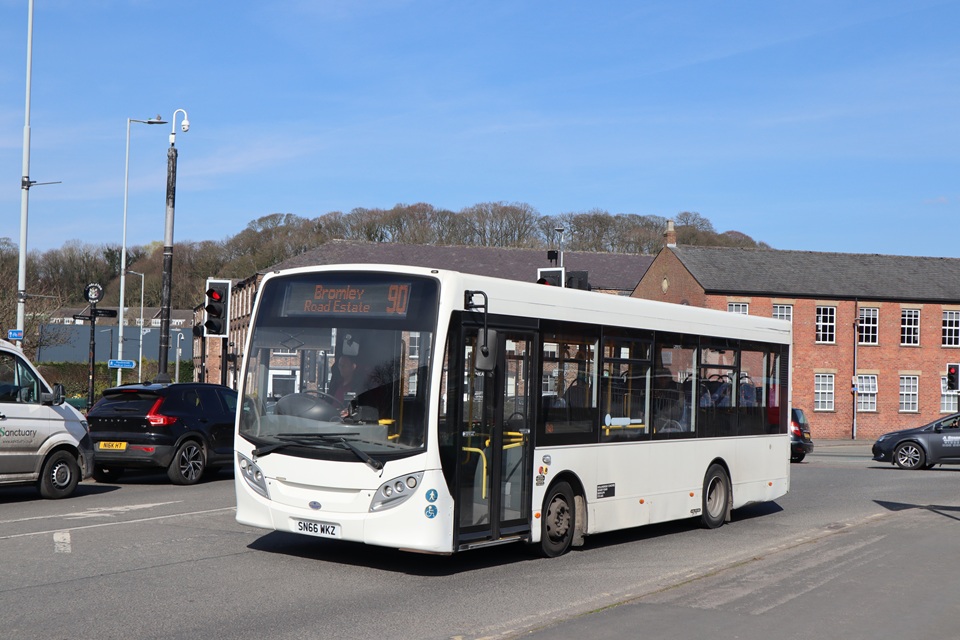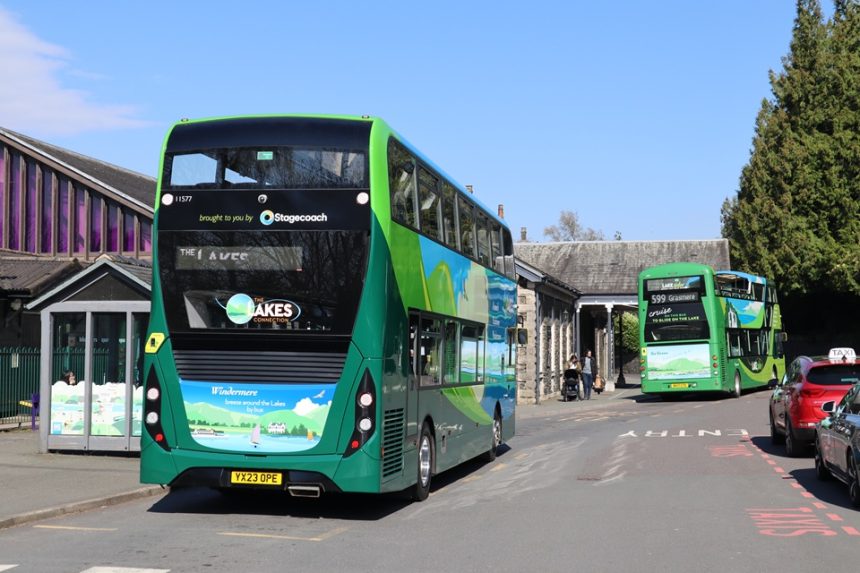Protection of socially necessary bus services in England under provisions in the Bus Services (No. 2) Bill will be via the establishment by local authorities (LAs) of “strict requirements” before they can be changed or cancelled.
While full detail of the approach to socially necessary services is awaited, such commentary was made by the Department for Transport (DfT) after the bill passed its second reading in the House of Commons on 2 June. It has been suggested that royal assent may be gained before parliament rises for summer recess on 22 July.
The protection of socially necessary bus services will see users insulated from “sudden and uninformed cuts,” DfT adds. On 14 May, Local Transport Minister Simon Lightwood told the Transport Committee that LAs will be left to define socially necessary services rather than be told by the government.
LAs will work with operators in doing that, with the bill set to “end the plight of bus routes being scrapped at short notice, tightening requirements for cancelling [them] – especially those used by vulnerable or disadvantaged passengers,” DfT adds.
As the bill reached its second reading in the House of Commons, Secretary of State for Transport Heidi Alexander called for greater accountability and reliability for bus services, although industry stakeholders have repeatedly stressed that the industry cannot bear the latter burden on its own.
MPs have also begun to have their say on proposals to protect vital services and empower LAs to make decisions that will benefit communities. The bill has already passed through the Lords.

Ms Alexander says that the government is “committed to giving local leaders the power to shape the bus services their communities rely on.”
That will see expansion and simplification of franchising powers and removal of the ban on creation of new municipal bus operators. Mr Lightwood has previously said that strengthened Enhanced Partnership is also core to government ambitions for bus.
The Campaign for Better Transport has welcomed the bill’s approach to socially necessary bus services. CEO Ben Plowden says that it “has long been central to our campaigning.”
While the government continues to highlight how the Bus Services (No. 2) Bill sits in line with its Plan for Change, the Confederation of Passenger Transport (CPT) continues to note how it will not be delivered upon without suitable funding from this month’s spending review.
Chief Executive Graham Vidler says that the second reading represents “a welcome step forward in prioritising Britain’s favourite mode of public transport.” However, he adds that to “be truly ambitious in meeting demand,” the bill “needs to be matched with funding not just to preserve the existing network but to add additional bus routes.”
Mr Vidler has underlined comments made by Director of Policy and External Relations Alison Edwards about the value of an additional £205 million per annum for the mode out of the spending review. It would expand the bus network by 5%, CPT says.
“That would be a modest sum in context of DfT’s annual budget of £40 billion,” Mr Vidler continues. “And the quickest, easiest way of improving buses would be to encourage LAs to speed up journeys by investing in bus lanes and priority schemes.”
























